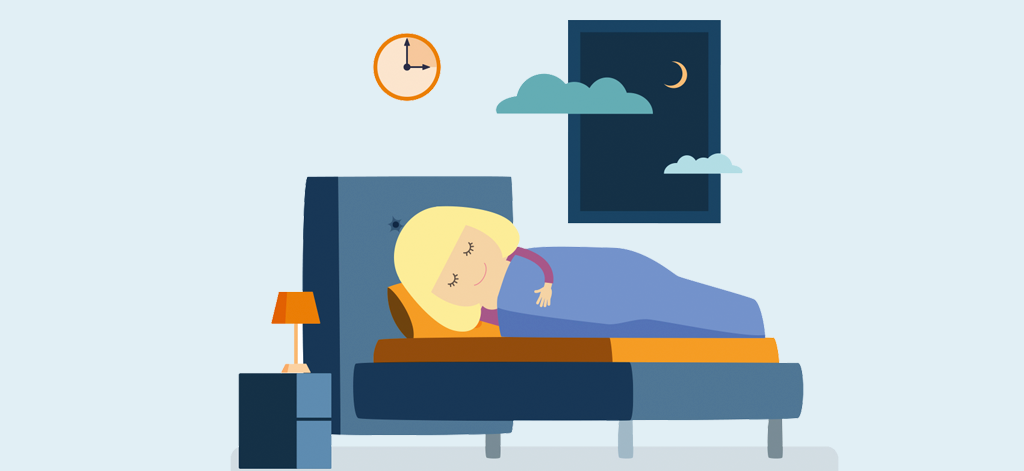The Connection Between Sleep and Chronic Pain: How Restorative Sleep Can Improve Your Well-Being
Living with chronic pain can be exhausting, both physically and emotionally. While there are many strategies to manage pain, one of the most powerful—and often overlooked—tools for pain relief is quality sleep. Sleep and chronic pain have a bidirectional relationship, meaning that poor sleep can intensify pain, while persistent pain can make restful sleep difficult. Fortunately, improving sleep quality can significantly enhance pain management, overall well-being, and quality of life.

The Impact of Poor Sleep on Chronic Pain
Lack of sleep can exacerbate chronic pain in multiple ways. Here’s how:
- Increased Pain Sensitivity: Research shows that sleep deprivation can lower pain thresholds, making discomfort feel more intense.
- Inflammation: Poor sleep can contribute to higher levels of inflammation, which is often a key factor in chronic pain conditions like fibromyalgia, arthritis, and back pain.
- Emotional Distress: Insufficient sleep can lead to heightened stress, anxiety, and depression, all of which can make chronic pain harder to manage.
- Impaired Healing: Sleep is essential for tissue repair and muscle recovery. Without enough rest, the body struggles to heal, prolonging discomfort and stiffness.
- Decreased Pain Tolerance: Studies have found that even one night of poor sleep can reduce pain tolerance, making everyday activities more painful.
How to Improve Sleep for Pain Relief
If you struggle with chronic pain, prioritising sleep hygiene can be one of the most effective steps toward relief. Here are some evidence-based strategies to enhance sleep quality:
1. Establish a Consistent Sleep Schedule
Going to bed and waking up at the same time each day helps regulate your body’s internal clock, making it easier to fall and stay asleep. Aim for 7-9 hours of rest per night.
2. Create a Comfortable Sleep Environment
Your bedroom should be a sanctuary for rest. Consider the following adjustments:
- Use a high-quality mattress and pillows that provide proper support for your body.
- Keep the room cool, dark, and quiet. Use blackout curtains and white noise machines if needed.
- Avoid screens (phones, tablets, TVs) at least an hour before bedtime, as blue light can disrupt melatonin production.
3. Practice Relaxation Techniques
Stress and anxiety can be major barriers to sleep. Consider incorporating mindfulness, deep breathing, or gentle stretching into your nighttime routine. Practices like meditation, progressive muscle relaxation, and guided imagery can also be effective in calming the nervous system before sleep.
4. Be Mindful of Food and Drink
- Avoid caffeine and nicotine in the afternoon and evening, as they can interfere with sleep.
- Be cautious with alcohol—it may make you feel sleepy initially but can disrupt sleep later in the night.
- Try a light snack with sleep-promoting nutrients, such as a banana with almond butter or herbal tea with chamomile or valerian root.
5. Incorporate Gentle Movement
Regular physical activity can improve sleep quality, but timing is key. Engaging in light stretching, yoga, or a short walk earlier in the day can promote better sleep without overstimulating the body before bed.
6. Consider Cognitive Behavioural Therapy
CBT is a highly effective, evidence-based approach for treating sleep disturbances. It involves restructuring negative thoughts about sleep, improving sleep habits, and gradually retraining the body to rest more effectively.

The Big Picture: Prioritising Sleep for Better Health
Improving sleep isn’t just about reducing pain—it’s about enhancing overall well-being. When you sleep better, your mood improves, your immune system functions more effectively, and your body has the opportunity to heal. While chronic pain can make sleep challenging, implementing even small changes can lead to significant improvements in both sleep quality and pain levels.
If you’re struggling with both chronic pain and poor sleep, consider speaking with a healthcare provider or sleep specialist to explore further treatment options. By prioritising restorative sleep, you may unlock a powerful tool for managing pain and improving your quality of life.


